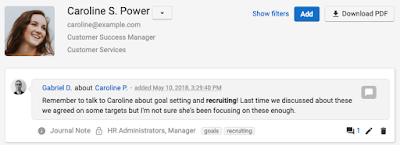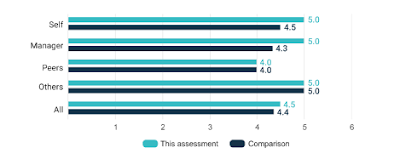It’s so important in any career, at any level, that people are coached instead of ‘managed’ in order for them to improve and progress. Successful coaching and mentoring always includes giving constructive feedback, because it’s something that lets the person being coached to discover their own potential, something that’s crucial for improvement.
In fact, we all need feedback, whether it’s in our personal or working lives. Don’t just take my word for it, see what Bill Gates says:
How does feedback help people improve?
Feedback shouldn’t only be positive, because if there are issues, people need to be aware of them in order to be able to deal with them. As long as feedback around performance issues is presented in a constructive manner, not accusatory, it gives the recipient a chance to consider how they can solve the issue, and whether they need any support to do so.
It’s a great way to identify individual strengths and weaknesses – people need to know what’s working and what isn’t so they can use their strengths and positive aspects of their performance to improve any weaknesses. Of course, without feedback, they wouldn’t know what their weaknesses even were!
It can be all too easy to come to our own conclusions about ourselves and our individual performance, so objective feedback is extremely valuable as a kind of ‘reality check’, if you like. Just imagine if you suddenly discovered that what you’d always believed about your performance wasn’t in fact how others saw it. That you’d carried on oblivious for years, without even realizing you needed to improve in a certain area, or areas. You’d be devastated, wouldn’t you?
Feedback in appraisals
In conjunction with setting targets, goals or KPIs, specific feedback is crucial in a formal appraisal situation. Rather than just telling the subject of the appraisal they’re either doing well, or failing to achieve, they should be told why their performance is being judged at a certain level.
They need to accept that there’s a problem in the first place to be able to take action to resolve it, and appropriate, constructive feedback helps with this. Feedback in appraisals is definitely a two way conversation, and conversation rather than instruction helps both parties to understand what’s being discussed. Using specific examples of the issue, the feedback is important in order to make the appraisal a success, and the person should also have the chance to provide their own feedback, as well as discussing any concerns they have about the feedback given.
With the Employee Journal feature available in Primalogik you can record all feedback along the review cycle, without having to resort to outdated post-it notes or other type of reminders.
The Employee Journal module, available with all subscriptions, allows the manager to keep valuable records in an efficient and effective way. The manager can code each entry, providing an easy way to filter on positive feedback events later on.
Feedback through 360 degree surveys
Feedback from more than one person is so valuable, which is why 360 degree surveys are a particularly positive way of including feedback in an overall coaching program. In a 360 degree survey, feedback is received from peers, direct reports and managers, and the insight people get from receiving feedback from people of all levels, with different relationships and responsibilities, gives them a much more balanced look at their own performance.
Primalogik 360 provides a simple, yet effective visual tool to analyze the data collected in 360 surveys. Clearly differentiating results by Respondent Groups (which can be customized if required).





